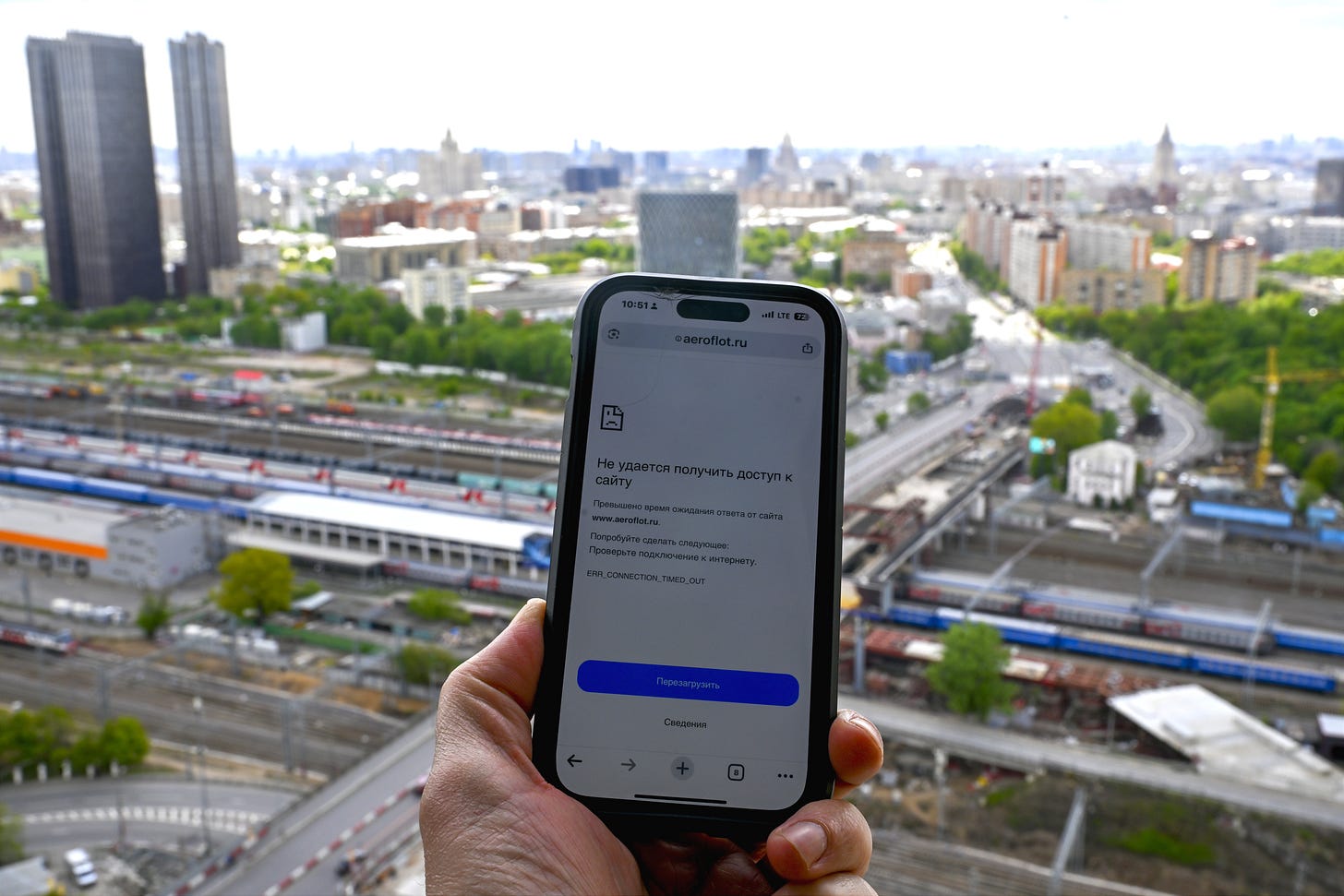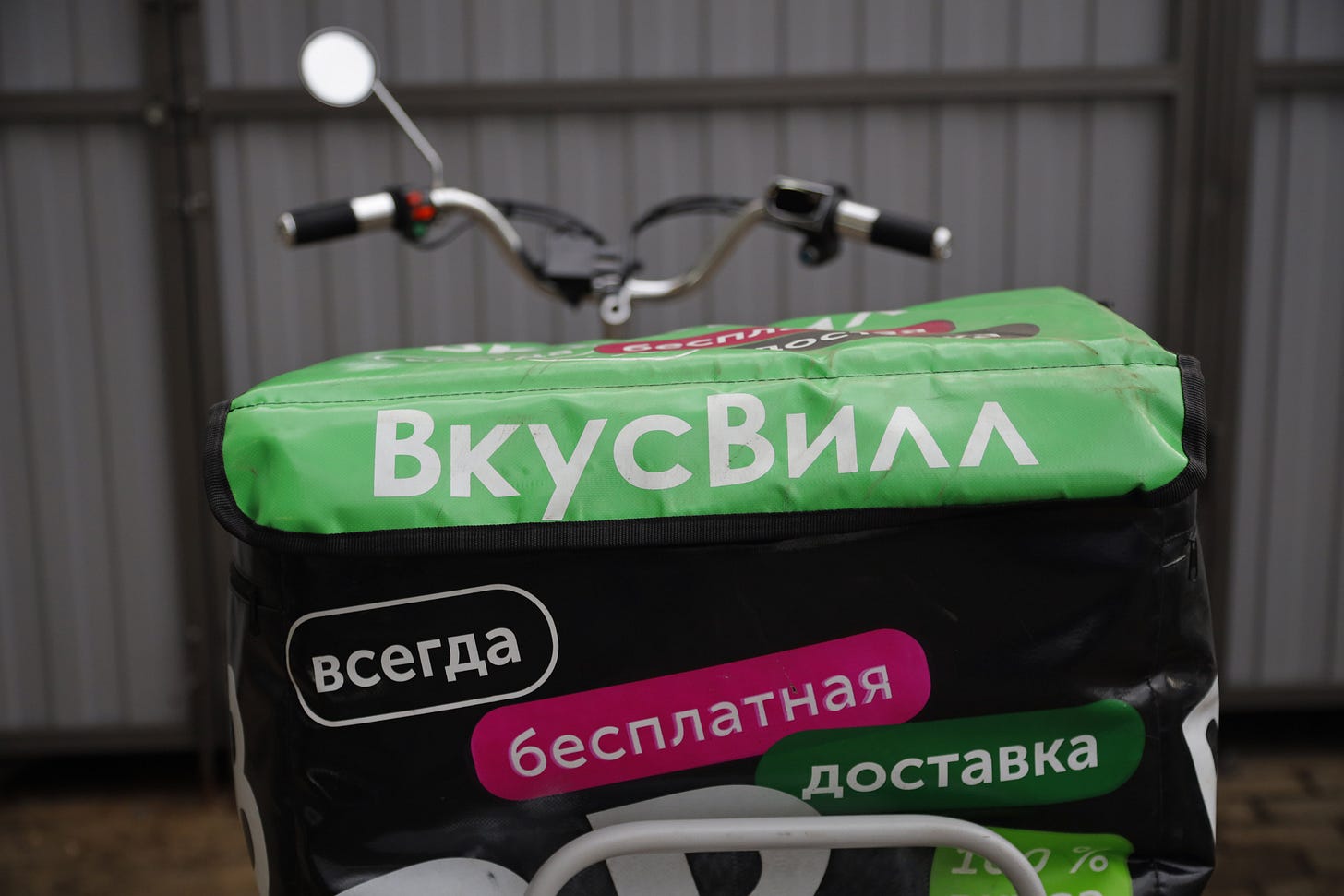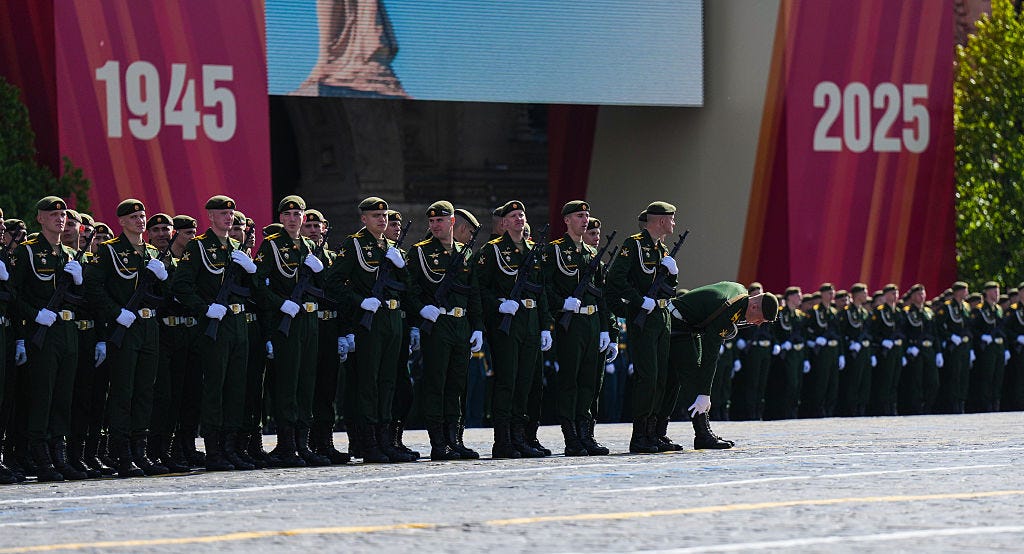No connection... how Russians survived the May holidays with no mobile internet
Heightened wartime security measures mean Russian businesses and the general public are having to learn to live with unreliable electronic communications and internet outages.
By Svetlana Reiter, Sergey Kagermazov, Yaroslava Kiryukhina.

When the authorities shut down mobile internet access in Moscow on 9th May to prevent possible drone attacks on the annual Victory Day parade, it came as a shock to many mobile phone users, but big businesses had been given prior warning by mobile operators, BBC News Russian has found.
The warning enabled businesses from delivery companies to mobile scooter hire services to make contingency plans. But the government’s insistence that the wider public should not be told about the outages until days before the parade, meant record levels of complaints from frustrated customers.
Fear of ‘traumatising’ the public
We spoke to a source at Yandex, one of Russia’s biggest tech companies, who told us telecoms operators had been in touch a week before the May holiday season to flag up imminent shutdowns of the mobile internet.
“They warned us in advance, so although revenue was affected, we were able to plan for it and things were not as bad as they could have been,” the source said. A contact at one of the telecoms firms confirmed their account.
The Vkusvill supermarket chain also got tipped off about the shutdown, according to two industry sources we reached.
“There was a suggestion to warn private individuals as well as businesses,” one said. “But people from the regulator blocked it, saying it would traumatise the population.”
More than 50,000 people complained each day about compromised mobile performance, according to another of our sources. Data gathered by outage detector services suggest the number is more than the total complaints lodged about YouTube since Russia began to throttle the video service in August last year.
E-scooters in the spotlight
“Apparently the city Anti-Terrorism Commission were lobbying for heavier restrictions on us than in the past,” said a source at an electric scooter rental company. “Security officials thought scooters posed some sort of special threat.”
The reason could well be the killing of a top general, Igor Kirillov, in Moscow in late December last year when a scooter packed with explosives blew him up outside the entrance to his apartment block.
Moscow authorities warned some businesses of the impending internet shutdown. “We were told ‘Colleagues, be ready for the internet to stop working’ by city administration officials,” according to a source at one of the transport companies.
He added that nobody knew for sure which areas of Moscow would be hit, but that employees had been warned there ought to be no scooters on the parade route, and from 5 am on 9th May, “no unauthorised persons, including company personnel, were allowed into the parade zone.”

So the rental firms took the e-scooters off the streets themselves, and notional losses were in the end minimal - but only because the weather was bad and demand was low over the days in question anyway, our source explained.
All telecoms providers are obliged by Russia’s so-called ‘Sovereign RuNet’ law to install TSPU – technical threat countermeasures – technology which enables the authorities to block the mobile internet, and is the same means they are deploying to slow down YouTube.
“A vital security measure”
Moscow city government press office announced on 6th May that mobile internet was going to be cut off, and after that businesses started warning their customers of difficulties ahead.
Notifications were issued by the MTS mobile operator, among others, and the Fast Payment System which provides quick money transfers within Russia. The city transport system suggested passengers top up their travel cards before the start of the holidays.
The Russian Association for Electronic Communications confirmed that businesses nevertheless ran into problems, according to the organisation’s director, Yekaterina Demkina. But according to her, market players “are responding with understanding to the disruptions, since this is a vital security measure today.”
The press service of the Association of Internet Trading Companies reported that “the problem has been exaggerated.” But an hour of downtime in Moscow for taxi and carsharing services in Moscow could have reached 30 million rubles in losses, based on an average trip cost of 500 rubles and a loss of 30,000 to 60,000 orders, according to an industry analyst cited by the RBC news outlet. Payment problems may have caused daily turnover to drop by 5-7% at retail outlets, while online commerce could have been hit by as much as 20%.
Two Yandex operations, ‘Eda’ (‘Food’) and ‘Delivery’, refused comment while Yandex.Taxi had not responded at the moment this article was published. The BBC also sent enquiries to Ozon, VK, Whoosh, Wildberries, Beeline, VTB, Delimobil, Yandex, Sber, T-Bank, Megafon, MTS, and Rostelecom, as well as the Delovaya Rossiya and Opora Rossii business associations, the Russian Union of Industrialists and Entrepreneurs, and the Chamber of Commerce and Industry.
In late May, Forbes reported that the mobile outages had caused a spike in requests for wired internet connections, citing sources among providers.
Russians get used to the new normal
On Victory Day itself, problems with the mobile internet and connectivity were recorded in at least 40 of Russia’s 89 federal subjects. Complaints began four days earlier on May 5th when troops rehearsing for the celebrations were working on the aerial part of the show.
Muscovites were informed by the joint state emergency response service that the internet was being shut down for their own safety. Anton Nemkin, a parliamentary deputy from the ruling United Russia party, told the TASS news agency that the service interruption was a compulsory but justified element of preventive citizen protection.
Kremlin spokesman Dmitry Peskov confirmed on 7th May that the outages were intentional, rather than random, as chaotic scenes ensued at some airports.
Long-range drones — both Ukrainian and Russian — often carry a physical or virtual SIM card for the cellular operator in the area in its flightpath. The Ukrainian drone attack on 21st May caused another wave of shutdowns – this time, unannounced - that affected at least six Russian regions.
“Russian service providers are not warned about unscheduled shutdowns linked to UAV attacks,” sources in tech companies told the BBC.

Communications restrictions have happened before. The mobile internet was shut down in 2023 when Putin flew to Volgograd, as well as during disturbances in the Dagestani capital when a mob gathered to meet a flight from Tel Aviv carrying Israeli passengers.
There were communications blockages during the funeral of opposition figurehead Alexei Navalny in March 2024, and during the BRICS summit in Kazan later that year. Last December, users reported loss of access to foreign web resources. The state communications monitor, Roskomnadzor, said the outage had been a drill.
Article 29 of Russia’s constitution guarantees access to information, and the country has ratified UN agreements that cover the right to remain informed. But despite this it’s becoming increasing clear that Russian internet users now have no choice but to get used to communication shutdowns and restrictions – without notice and for any reason.
Read this story in Russian here.
English version edited by Chris Booth.




